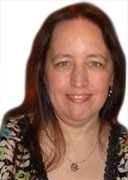Interview with Amy L. Bowser-Rollins, Litigation Support Guru and Adjunct Professor at Georgetown University
We recently had the opportunity to interview Amy L. Bowser-Rollins, who at the time of this interview was a litigation support manager. She continues to work as an adjunct professor for Georgetown University’s Paralegal Studies Program and is now Associate Vice President, Product Management, Risk and Financial Advisory at Deloitte. Amy has worked in the legal industry for over 30 years, and the litigation support field for over 20 years. Amy is also the founder of Litigation Support Guru, which provides resources for those in this niche. During the interview, we discussed which of Amy’s projects have been her most rewarding, the greatest challenges she faces, and finally, her advice for paralegals wanting to gain litigation support experience.
 What are the greatest professional challenges you face, and how do you overcome them?
What are the greatest professional challenges you face, and how do you overcome them?
I would say the greatest challenge is that lawyers in general are slow to change their methodologies for handling litigation eDiscovery matters. Even though the technologies get better each year, the legal industry tends to stick with the same workflow for five or more years before switching to a newer one. How do I overcome this? I make it a point to stay up to date on the latest technologies and trends so that I am prepared to suggest an alternate solution if and when the situation lends itself to being an opportunity to do it differently. Many times, the change will happen only when a client asks for it.
Can you give us an example of an interesting case or project that you have worked on and your role in helping to achieve a positive outcome?
After working on several second requests with our large communications client, they underwent a bankruptcy. My firm handled their responses to many ongoing requests. We collected ESI (electronic stored information) from 126 custodians. In the end, we collected 12 terabytes, which equated to 148 Billion e-mails with 38 billion attachments. Additionally, we scanned 2.8M pages of hardcopies and listened to recorded voicemails.
With a case this size, designing an efficient workflow is key. I worked very closely with an excellent senior paralegal. She and I designed the workflow and maintained the workflow so that multiple offices of attorneys could assist.
What advice do you have for paralegals wanting to expand their skill set so that it includes litigation support know-how?
It can be a difficult Catch-22 because they want the experience but they can’t teach themselves. If someone is interested in learning more about litigation support skill sets, I would suggest they check out the articles on my site. If they subscribe, they will be the first to learn about training or webinars I provide. Next, I would suggest if they have a litigation support team where they work, ask them if they can shadow a litigation support professional while they’re doing their work or attending meetings with attorneys. Tell them you won’t bombard them with on-the-fly questions. Making a list of questions for a later discussion is better. Another suggestion would be for them to offer to work on litigation cases with eDiscovery to gain exposure to the databases, service providers and web-based review tools.
We thank Amy for providing thoughtful insight about what it is like to work as a litigation support professional. For more insight into the field, visit Amy’s X @LitSuppGuru and LinkedIn.
